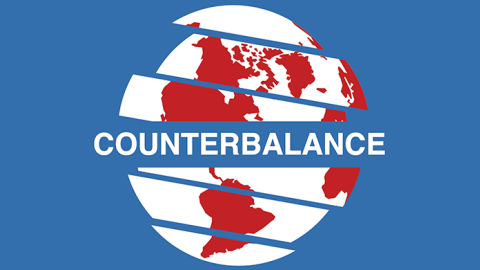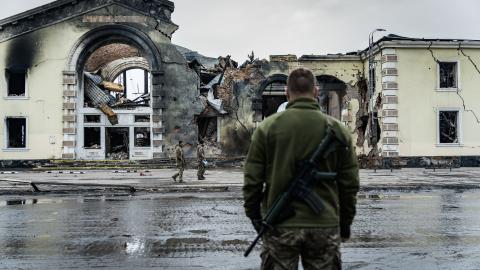The Jews, as the old sawhorse goes, wandered in the desert for forty years after their departure from Egypt, and managed to find the only place in the Middle East without oil. This worked as a self-deprecating joke until natural gas in large quantities was discovered offshore, in Israel’s exclusive economic zone. The American company, Noble Energy, discovered two large natural gas deposits, known as the Tamar and the Leviathan fields in 2009 and 2010. The combined reserves of the two fields are estimated to amount to 32 to 33 trillion cubic feet of natural gas—excluding sizable oil deposits. Europe including Turkey consumed 19 trillion cubic feet of natural gas in the last year for which statistics are currently available, 2013.
The Israeli gas finds offer not only the prospect of increasing energy independence. Their export represents a large and sustained boost to Israel’s economy. But nothing is simple. Israeli experience had in no way prepared it for the commercial, legal, practical, and environmental issues of such a windfall. Egypt accounted for 70 percent of Israel’s natural gas needs up until when Mubarak was overthrown. Azerbaijan has been a major oil supplier through a pipeline that ended at the Turkish port of Ceyhan from which the oil was shipped to Israel.
The absence of regulatory structure, courts experienced in energy law, environmental safeguards and other key elements of an official infrastructure capable of handling the windfall has left Israel unprepared to take full benefit from its abundant natural gas resources.
Although the American company, Noble Energy, that discovered the natural gas fields has partnered with several Israeli companies, Israel’s anti-trust commissioner, David Gilo, delayed a decision last week on whether a monopoly over the gas fields exists. This follows the same commissioner’s December about-face decision that tore up an agreement to resolve outstanding anti-trust questions. There’s a chance that the March 17 national election will calm the roiling waters of Israel’s energy business climate. This is necessary before any conglomerate—such as the one composed of Noble Energy and Delek as well as other Israeli companies—can make decisions about investing large sums, an estimated $6 billion dollars, to extract the natural gas and bring it to market.
On the other hand, the national elections could solve nothing. They could hand over the anti-trust issue to the courts which, even if they had long experience addressing such issues, could spend years wrangling over the outcome.
This would serve neither Israel’s nor the United States’ interests. The Palestinian Authority and Jordan have already signed letters of intent to purchase Israel’s natural gas. The many jobs that would be created in extracting and transporting natural gas might offer valuable and stabilizing opportunities to Palestinian workers. Israel would be depriving itself of an important source of income at a moment when the prospect of a nuclear-armed Iran demands major investments in Israeli submarine and missile technology to deter an Iranian nuclear attack.
More broadly, the Eastern Mediterranean is becoming increasingly unstable and violent. As is demonstrated by its decision last week to proceed with the purchase of a Chinese surface-to-air missile system that is not compatible with NATO systems, Turkey continues its slow withdrawal from the Western alliance. Ankara has two naval combatants covering an energy research vessel operating in a portion of Cyprus’s exclusive economic zone for which the Italian energy major, ENI, had paid for the right to explore. A former Libyan prime minister said publicly last month that if assistance in the fight against ISIL is not forthcoming, he expects that the terrorist organization will have a port on the Mediterranean within two months. This would allow ISIL to operate against such targets as cruise ships and merchant vessels transiting the Mediterranean as well as the ability to include ISIL terrorists among the refugees who are fleeing Libya for Italy. Russian combatants are now operating in squadron size units in the Mediterranean as Vladimir Putin eyes seizing a land route from Eastern Ukraine to Crimea thus giving Russia a warm water port in Europe.
At the same time the U.S. Mediterranean (Sixth) fleet is a diminutive shadow of its former self. Once comprised of two aircraft carriers and an amphibious ready group plus their escorting vessels and submarines, the Sixth Fleet is today a command ship based in Italy and a small number of ballistic missile defense-equipped destroyers based in Spain.
As the U.S. continues its withdrawal from the Mideast a stronger Israel serves Washington’s interest in the region’s security and stability which now includes the fate of Jordan and Egypt.
Israel’s security will be improved by the resources to modernize and strengthen it which in turn a more vigorous economy advances. One essential key to such economic growth is the development of Israel’s natural gas fields. Years of dithering over the extraction and export of this large resource harm not only the Israeli economy. They hurt the shared interest of the U.S. and Israel in reversing the Eastern Mediterranean’s descent into chaos.
















